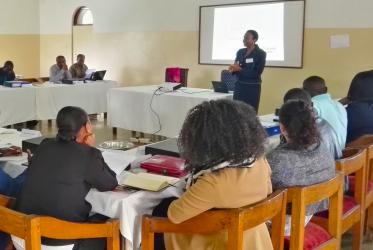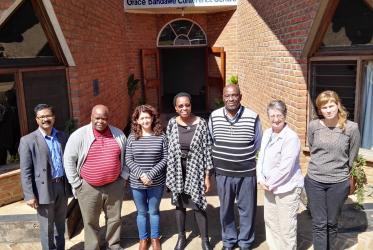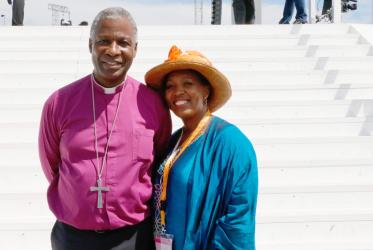Displaying 21 - 40 of 47
03 August 2017
Applications open for WCC Eco-School
10 May 2017
Tveit in South Africa: “ We know. We dare. We can.”
12 June 2016
WCC Executive Committee speaks out on migrant crises
12 June 2015










